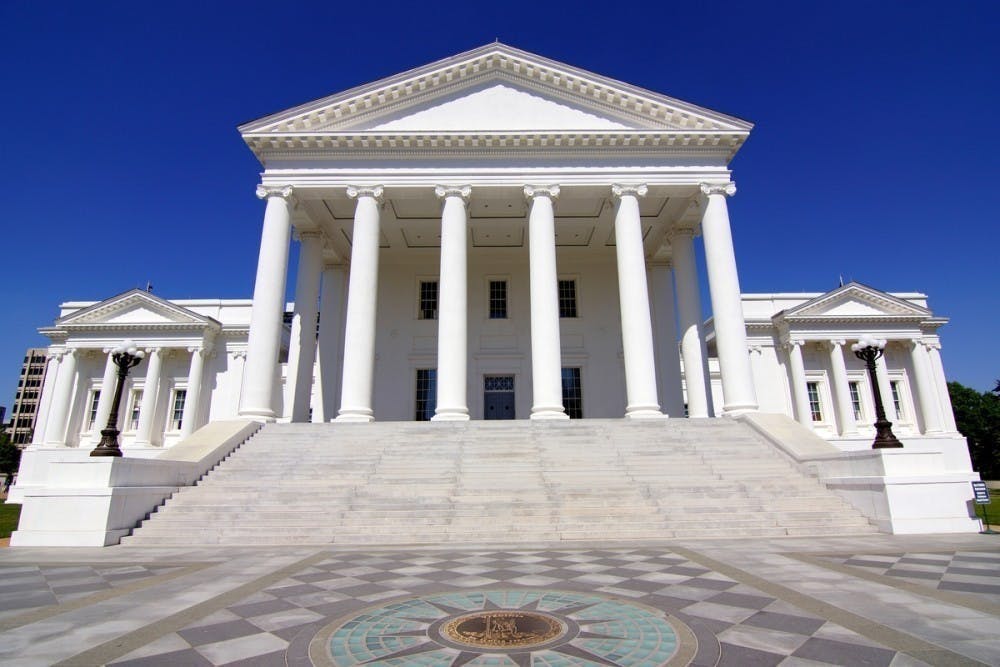Last Wednesday, Governor Ralph Northam, D-Va., signed Executive Order 49, calling for a state of emergency from 5 p.m. Jan. 17 until 5 p.m. Jan. 21.
Jan. 20 has been designated as a “Lobby Day” by the Virginia Citizens Defense League, a gun activist group. While VCDL organized the “Lobby Day” as a peaceful political gathering, out-of-state militia and hate groups are planning to attend as well. State intelligence analysts have identified instances of violent rhetoric among these groups similar to that used before the deadly white supremacist violence of August 2017 in Charlottesville.
As a result, students affiliated with Virginia Student Power Network have postponed plans to lobby in Richmond for their annual Martin Luther King Advocacy Day, which included progressive initiatives such as criminal justice reform and in-state tuition for undocumented students.
"Nothing is more important than the health and safety of our members,” the organization said in its statement. “Based on information concerning armed racist militias, the militarization of the Capitol area, and the likely dispersal of many people with guns, we have decided to postpone our annual Martin Luther King Advocacy Day."
According to The New York Times, three men have already been arrested by the FBI for violent ties to the upcoming event. They had plans to travel to Richmond with weapons for what they hoped would be the beginning of a race war.
Northam encouraged the VCDL to disavow violent groups in a press conference Wednesday, mentioning the success of an NRA lobby day that occurred Jan. 13.
There has been no clear effort by VCDL to do this on their Facebook page or website.
“Now, I call on the Virginia Citizens Defense League, and its members, to follow the NRA’s example, and make your event a peaceful display too, as you have done in the past,” Northam said.
The executive order authorizes emergency preparations and bans firearms and weapons from the Virginia State Capitol.
Both open and concealed carry firearms will be prohibited, and the weapons enumerated within the executive order include “sticks, torches, poles, bats, shields, helmets, caustic substances (i.e., pepper spray), hazardous materials, scissors, razor blades, needles, toy guns, toy weapons, fireworks, glass bottles, laser pointers, aerosol containers, baseballs, softballs, UAVs/Drones or any item that can inflict bodily harm that is visible, other than firearms.”
The temporary ban on firearms was upheld by a Richmond Circuit Court judge Thursday.
Further guidelines were elaborated at the press conference. One was Northam’s request for nonessential employees to stay home.
“Monday is a holiday for state employees and many others, and that is good news,” Northam said. “If you don’t need to be in downtown Richmond on Monday, please consider staying home.”
Along with Northam, the mayor of Richmond, the superintendent of the Virginia State Police, the chief of the Virginia Capitol Police and the chief of the Richmond Police Department spoke on different aspects of upcoming security measures. There will be only two pedestrian access points for the Capitol Plaza throughout the weekend, and there will only be one heavily secured access point Monday.
In justifying the need for the state of emergency and ban on firearms, Northam connected the planned events in Richmond to the white nationalist rallies that occurred in Charlottesville in August 2017 during his press conference.
“They're coming to intimidate and to cause harm,” Northam said. “State intelligence analysts have identified threats and violent rhetoric similar to what has been seen before other major events, such as Charlottesville.”
The August 2017 “Unite the Right” rally was planned for Aug. 12 in Charlottesville’s Lee Park, which is now renamed Emancipation Park. A state of emergency was declared around noon Aug. 12, but by then the violence had already begun with a torchlit march on the Lawn at the University Aug. 11 and clashes early Aug. 12.
There has been criticism of these events were handled by local police, causing the acting City police chief at the time to step down. An independent review issued by former U.S. Attorney Tim Heaphey and other lawyers criticized then-UPD Chief Michael Gibson for failing to coordinate with law enforcement partners, calling the response “woefully inadequate.”
Professor Larry Sabato, director of the University of Virginia Center for Politics and a co-producer of the documentary “Charlottesville,” spoke about the lessons learned from the violence at Charlottesville.
“The main lesson is to be prepared for the worst, just in case it happens, as it did in Charlottesville,” Sabato said. “A more general, but vitally important lesson, is to do everything legally possible to combat these hate groups, and do it 365 days a year.”
Sabato went on to agree with Northam’s actions.
“Governor Northam has done the right thing,” Sabato said. “The intelligence strongly suggests that some individuals are coming to Richmond not to peacefully protest or lobby their legislators, but to generate violence and cause physical harm and property damage. We all hope peace prevails, but if something happens, the state police and other authorities are prepared to act. In that sense, the 2017 violence in Charlottesville has served as a lesson learned — though at great cost.”







